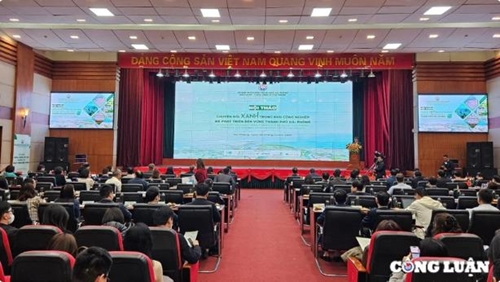    |
 |
|
Hai Phong hosts a conference on green transition and sustainable development. (Photo: congluan) |
According to Bruno Jaspert, General Director of the Deep C industrial park complex, the organization has been piloting an eco-industrial park model for the past five years, aiming to become Vietnam’s first officially recognized eco-IP. However, several challenges remain. Notably, there is currently no distinction in regulations between newly established eco-IPs and those converted from traditional IPs. Furthermore, there is a lack of official guidelines for certifying eco-industrial zones.
In addition, the country's laws have not kept pace with technological advancements and innovation. This lag makes it difficult to apply the latest sustainable practices due to the absence of legal guidance or barriers in obtaining construction or environmental permits. Additionally, eco-industrial zone development has yet to secure active participation from key stakeholders, including secondary investors.
Jaspert stressed that the success of eco-IPs depends on strong public-private partnership. The Government's support through policies and incentives is crucial for creating a favorable environment for sustainable industrial practices.
Pham Hong Diep, Chairman of the Board of Directors of Shinec JSC – the investor behind the Nam Cau Kien eco-IP – added that infrastructure development for these green zones costs at least 20% more than that of conventional zones. Without tailored mechanisms or more attractive incentives, businesses will likely continue investing in traditional IPs instead of pursuing the eco-industrial route.
He recommended developing a distinct legal framework applicable both to the establishment of new eco-industrial zones and to the conversion of existing traditional zones into greener models.
In March, Hai Phong hosted a conference on green transition and sustainable development. At the event, Le Tien Chau, Secretary of the municipal Party Committee, affirmed the city’s commitment to creating an environmentally responsible production environment. The city aims to minimize waste and optimize energy use in accordance with international green standards, positioning local businesses to access global markets more effectively.
As part of its 2024 green growth efforts, Hai Phong implemented initiatives across 17 sectors. These included building and refining legal and policy frameworks as well as strengthening state management in line with green growth objectives.
Source: VNA